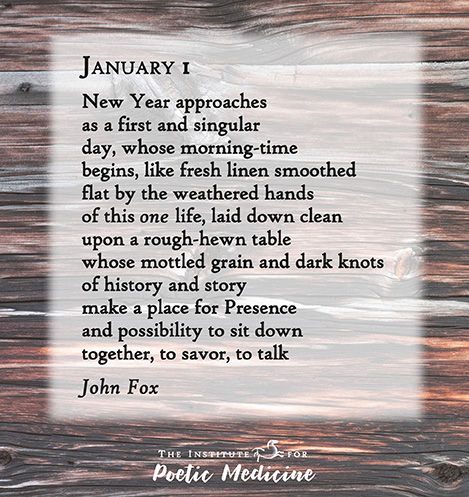What Is Past Is Prologue | John Fox, PPM
- IPM Team

- May 12, 2024
- 4 min read
Updated: Apr 7, 2025
John offers this backstory to Elizabeth Bolton's essay "In Defense of the Whim".
"...what's past is prologue..."
from The Tempest by William Shakespeare
I was writing a letter to the newly-formed IPM Succession and Sustainability Work Group about some nitty-gritty things we needed to look at. Yet, I was also asking myself this question: what and who is poetic medicine; the response comes back that the essence is children and their creativity, the essence is making a place for a broken heart that needs that space for self-expression which is, when well cared for, a path of healing.
Saying what I wrote about children is not a great revelation. Yet it is perhaps the revelation we must remember.
Don’t listen to me, I wrote, please listen to this poem by 11-year-old Elizabeth Bolton:
Bar of Soap
The bar of soap
is so much more
than it appears
to be. The little
package washes
you clean, like
a dream, the
slightest sound
can wash it away.
Its shape and
size make all
the difference.
It has no
outer shell.
Just smooth
white slippery
solid. Dreams
do not require
a shell. Nothing
protects them.
There is nothing
to break through.
You fall asleep
the dream is there,
you pour the
water over
it, the soap
substance
is there.
It appears
so little yet
does so
much.
~ Elizabeth Bolton, 5th grade

Elizabeth wrote that poem 28 years ago. That amount of time is hard to believe! Her poem is included in Poetic Medicine: The Healing Art of Poem-Making. I invited the children to consider an object and write about that object. They could let that object have a voice and tell them about itself.
Soap! Her insight, creativity, delight, flow, surprise, wisdom and the shaping of this poem, still stun me. I don’t know what she is up to now I wrote. I hope poetry is part of her life. I feel certain that she remembers this with positivity.
Sharon Lowe, who is on that sustainability work group responded by sending me a link to the web site of Dr. Elizabeth Bolton. What?! So, I wrote to Dr. Elizabeth Bolton. Did you write the poem Bar of Soap? Soon, I received this:
Hello John,
Thank you so much for this wonderful email that has warmed me so much. I am the same Elizabeth Bolton from the 5th grade class, and I remember so well your visits to our classroom and writing that soap poem! The copy of Poetic Medicine you had given me sat on my bookshelf at our home in Menlo Park for decades and always reminded me of what I was capable of. The urge to write poetry has never left me.
You may very well be saying…Wow…isn’t life wonderful. I felt that—this is wonderful! I am happy to hear from the adult Elizabeth and thankful to Sharon for helping to find her. Yet, this delightful surprise unfolded into a more and even better surprise!
Dr. Bolton wrote in the same email letter:
My PhD from the University of Toronto was in Literacy Education, and I managed to focus it on poetry and mental health. I wrote about poetizing personal experiences in order to transform the self...the whole idea was that writing about an experience poetically creates the space for a person to dwell inside of the memory, and reflect on it, and this allows empathy for the self to happen.
Elizabeth communicates in this single paragraph a deep understanding of poetry as healer. There is ringing clarity. This was not an abstract—as a poet and PhD candidate—she tested the truth of her understanding of postpartum depression via life-experience and her own writing—through her poems, through writing her dissertation.
Once again, I am stunned!
She writes in the opening pages to The Poetics of Postpartum: Dwelling in Poetic Space to Parent the Self:
Feeling the world around me turn into an urge towards poetry, before I had even written that poetry, was precisely the transformative effect I’d sought to explore.
and
In short, we do not need to write about trauma in order to see what writing can really do for a writer. We do, however, need to write with ample shares of honesty, humility, and fearlessness about our own experiences in the world.
This is a small taste of this brilliant document. Elizabeth and I communicated about poetry-as-healer in subsequent letters. When May as Mental Health Awareness month arrived, she was one of the people I reached out to when asking for contributions. She responded with a the superb essay we share below.
I invite you to enjoy! Thanks to you, Elizabeth.
An excerpt from
In Defense of the Whim
Elizabeth Bolton, PhD
It’s dandelion season again. I love those tiny sunbursts, those little lion’s manes of which there are no shortage on my walks to and from kindergarten with my three young daughters. To my daughters, dandelions are far from “weeds.” To my daughters, all under the age of five, they are “the ones you are allowed to pick.” I find myself hard-pressed to explain to children of that age why the neighbors’ pink tulips cannot be touched or trampled, yet dandelions can be plucked up by the bunch.




Comments